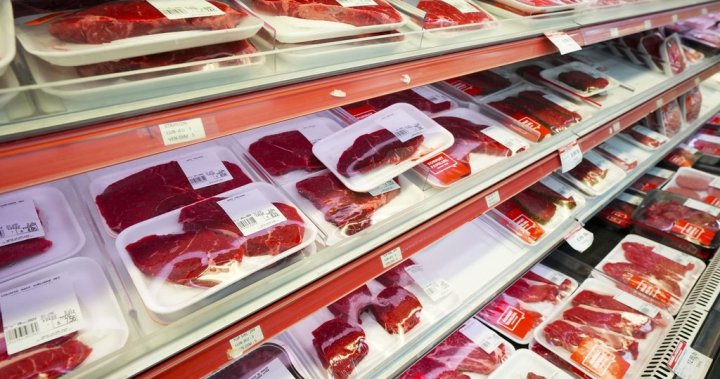As dusk settles over Ottawa’s parliamentary precinct, the latest controversy brewing inside committee rooms has less to do with partisan theatrics and more with what Canadians might eventually find on their dinner plates. The Internal Trade Bill C-5, championed by the federal government as a breakthrough for interprovincial commerce, has quietly sparked alarm among food safety experts and export-dependent producers.
“We’re walking a dangerous tightrope,” warns Dr. Sylvia Chen, food safety regulator and former advisor to Agriculture Canada. “Harmonizing standards sounds positive until you realize we’re potentially trading away decades of carefully built export credibility.”
At issue is a provision buried deep in Bill C-5 that would prevent provinces from maintaining meat inspection standards higher than federal baselines—a move designed to ease the flow of products across provincial boundaries. For consumers purchasing local cuts at neighborhood butchers, this might seem inconsequential. For Canada’s $8.8 billion meat export industry, the stakes couldn’t be higher.
I spent Tuesday morning at Eastern Ontario’s Glengarry Farms, where third-generation cattle farmer James MacIntosh showed me neatly organized binders containing the exacting requirements his operation must meet to sell beef to European Union markets.
“These regulations weren’t created to be obstacles,” MacIntosh explained, pointing to certification documents requiring everything from hormone-free verification to specific feeding practices. “They’re the reason Canadian beef commands premium prices overseas. Our reputation for exceeding minimum standards isn’t red tape—it’s our competitive advantage.”
The European Union has historically recognized several provincial inspection systems, including Ontario’s and Alberta’s, as meeting their stringent import requirements—often standards that exceed federal Canadian minimums. Under C-5’s current language, provinces would be barred from maintaining these higher standards.
Last week’s committee testimony from Alberta Agriculture Minister R.J. Sigurdson highlighted the potential economic fallout. “Alberta exports $2.3 billion in beef products annually. Nearly 40% goes to premium markets demanding standards above federal minimums,” Sigurdson told parliamentarians. “This bill threatens market access we’ve spent decades building.”
The government’s position, championed by Internal Trade Minister Anita Anand, focuses on breaking down what she calls “costly and unnecessary barriers between provinces.” During question period yesterday, Anand defended the legislation as “modernizing internal trade while maintaining our commitment to safety and quality.”
But critics point to a fundamental misunderstanding about how global food markets operate. Tim McMillan, president of the Canadian Meat Council, explained the disconnect during committee hearings: “In international trade, the ability to demonstrate standards exceeding minimums often determines market access. This legislation seems crafted without consulting those who actually secure foreign customers.”
On Parliament Hill, where I’ve covered legislative battles for nearly a decade, Bill C-5 represents something increasingly rare—a policy debate cutting across traditional partisan lines. Conservative MPs from rural ridings have joined progressive urban Liberals in questioning the bill’s potential consequences.
Perhaps most revealing was my conversation with Marianne Rousseau, who oversees Quebec’s Saint-Hyacinthe meat processing facility. “Consumers in Japan and South Korea don’t purchase our products because we meet minimum standards,” she told me during a plant tour last month. “They choose Canadian because they believe we exceed them.”
Public health advocates have raised separate concerns. Dr. Jennifer Walsh from the Canadian Public Health Association points to past provincial innovations that advanced food safety nationwide. “Provinces have often been laboratories for improved safety protocols that eventually became national standards,” Walsh noted. “This legislation could freeze that innovation.”
The bill returns to committee next week, where industry representatives and provincial ministers are expected to propose amendments allowing provinces to maintain enhanced standards specifically tied to export requirements.
Behind closed doors, sources within the government acknowledge the oversight. “This was meant to simplify interprovincial trade, not complicate international exports,” confided one senior policy advisor who requested anonymity. “There’s room to fix this while maintaining the bill’s core purpose.”
For Canadian farmers and processors who have built businesses around meeting premium international standards, the debate isn’t academic. Last year’s data from Statistics Canada shows agricultural exports supporting approximately 2.3 million Canadian jobs, with meat products representing a growing segment of that trade.
Walking through the MacIntosh family’s cattle operation—where three generations have gradually built relationships with overseas buyers—the real-world implications become clearer than any committee testimony could convey.
“We’re not opposed to streamlining domestic trade,” MacIntosh said, watching his daughter check feeding schedules for cattle destined for European markets. “But not at the expense of what we’ve built. Some standards aren’t barriers—they’re bridges to markets willing to pay more for Canadian quality.”
As the legislation moves forward, the challenge for parliamentarians will be finding balance between domestic trade efficiency and protecting Canada’s international reputation for premium food products. For now, producers like MacIntosh can only watch parliamentary proceedings and hope their export markets aren’t accidentally legislated away.
“We’re counting on Ottawa to understand the difference between eliminating unnecessary hurdles and dismantling standards that actually create value,” he said. “Sometimes, in government’s rush to simplify, they risk breaking things that aren’t actually broken.”






